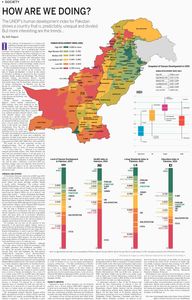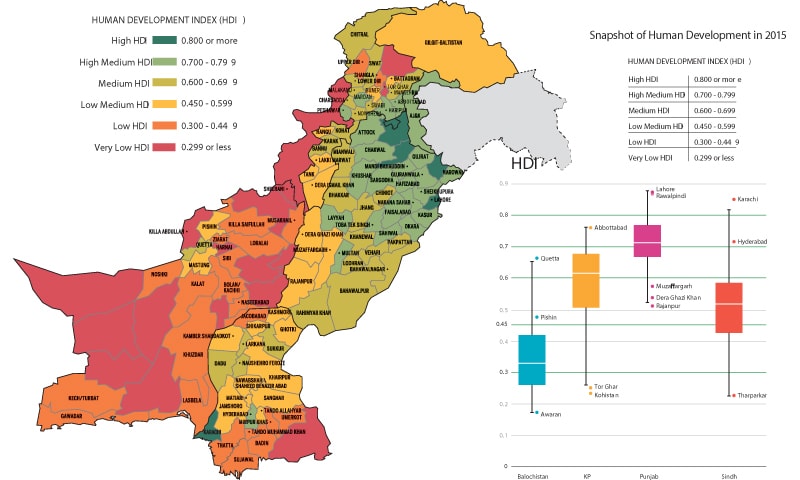Najam Writes OpEd on Human Development in Pakistan
Adil Najam, Dean of the Frederick S. Pardee School for Global Studies at Boston University, published an op-ed in the daily Dawn on May 13, 2018, outlining the findings of his research on constructing a district-by-district Human Development Index (HDI) for Pakistan. Titled “How are we doing?” the essay reported on the Pakistani HDI produced by Najam and his research team as part of the Pakistan National Human Development Report on Youth, published by the United Nations Development Programme (UNDP), for which Najam is the co-lead author (more on the research here).
 The research project has developed a Pakistan-specific methodology for calculating a district-level human development index (HDI), which was calculated for each district and region in Pakistan over six prior waves spanning a decade. This op-ed highlighted some of its key findings, starting with a discussion on the concept of human development:
The research project has developed a Pakistan-specific methodology for calculating a district-level human development index (HDI), which was calculated for each district and region in Pakistan over six prior waves spanning a decade. This op-ed highlighted some of its key findings, starting with a discussion on the concept of human development:
If the purpose of development is to improve the wellbeing of people, then it seems logical to think of it as a measure of the response to the question, “How are you?” Yet, it is unlikely that citizens anywhere will respond to that question by telling you the prevailing rate of inflation, the Gini coefficient, or even their national Gross Domestic Product (GDP). They are much more likely to respond with information about their health, perhaps details of a recent bout with sickness; about wealth, possibly news about getting a job or buying a house; or about knowledge, maybe a movie they saw, a song they heard, or a book they read.
Unlike conventional measures of development, which rely principally on the growth of the economy, the idea of ‘human development’ is based on this notion of individual wellbeing as measured by three essential elements: health, wealth and knowledge.
Najam went on to describe the two key findings of this research:
The results are not really surprising, but they are thought-provoking. Two, in particular, are worth highlighting. First, in terms of human development — as in every other way — Pakistan is an extremely unequal and divided country. The chasm between our most and least developed regions is not just great, it is obscene. Second, while the entitlements of some and the depravations of many regions may seem permanent, in fact, they are not. Investments in human development can, and do, make a difference. Local-level HDI can, and does, change even over relatively short periods of time. And policy impacts can be, and sometimes are, more evident and effective at the district level than at provincial scales.
Full text of the op-ed can be read here.
The research on which this op-ed was based, led by Dean Najam, has been widely reported in the Pakistan media, including most major TV news channels and major newspapers which have written editorials and op-eds based on it. Some examples here, here, here, here, here and here.
Adil Najam is the inaugural dean of the Pardee School of Global Studies at Boston University and former Vice Chancellor of the Lahore University of Management Sciences (LUMS). He has studied and been involved with the UN Human Development Reports since their initiation in the early 1990s. Read more about him here.
